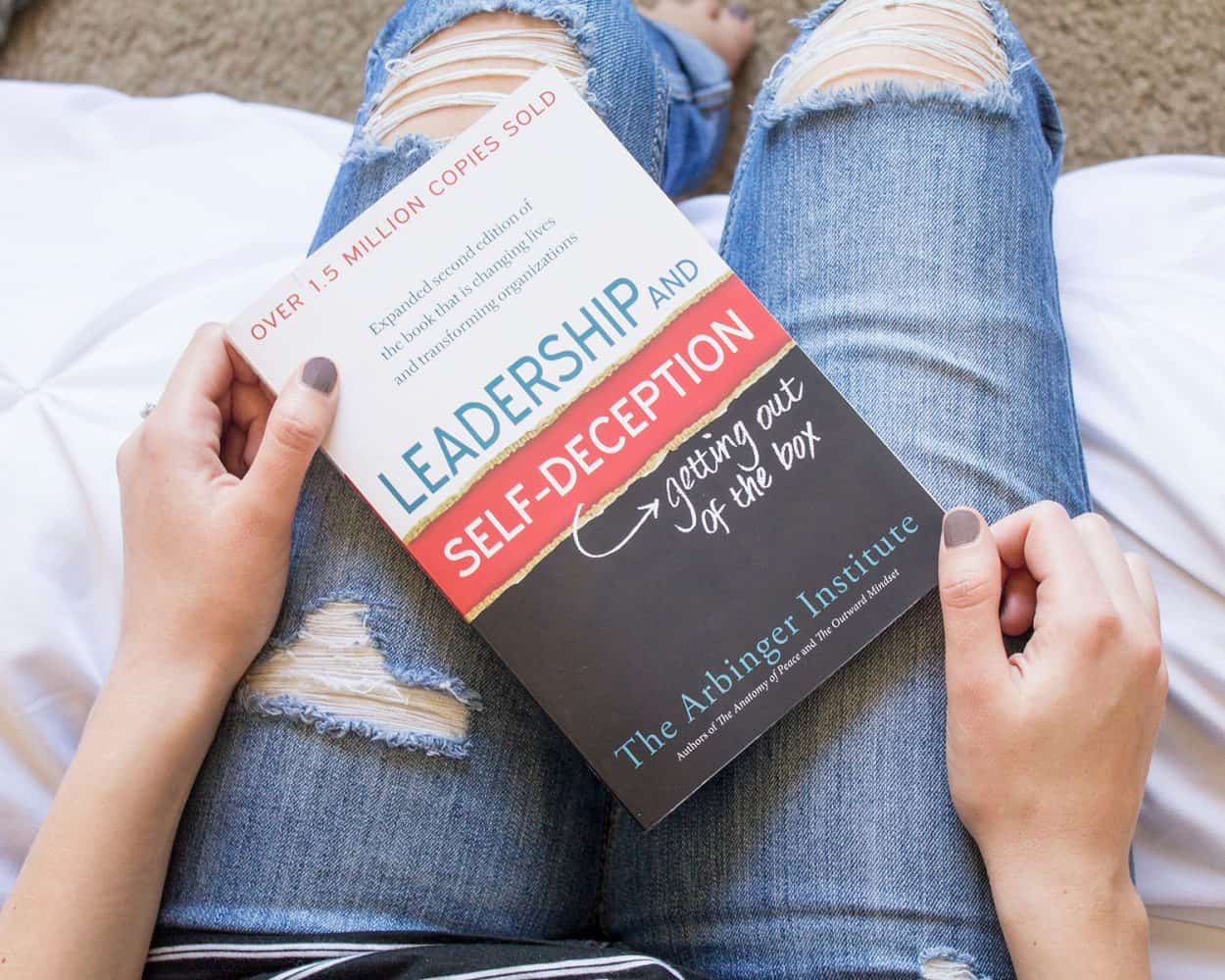5 Best Reads on Business Strategy and Leadership to Take on Your Holiday
Knowledge is a cornerstone of success. Discover these must-read books that will show you how the world’s most powerful people get to where they are today.
Not everyone gets a chance to work alongside those who left a mark in the business world. But that doesn’t mean that you can’t learn from them. Over the years, countless books on leadership and how to succeed in business have hit the shelves. For those who are willing to learn, there’s more than enough knowledge to go around.
Winter holidays are coming, and what better way to blend business and pleasure than to get in your most comfortable clothes and unwind with a good book? You can discover many ideas regarding conquering the market, leading your people, and many other such topics. And all that in the comfort of your sofa with nothing better to do on a wet winter day.
Listing all the notable books on this topic would take forever. So let’s concentrate on the most impactful ones.
1. The Innovator’s Dilemma by Clayton M. Christensen
This is a must-read for everyone who wants to take their innovation to a new level. Disruptive technologies separate leaders and followers, and this book can point you in the direction of the former.
Some of the world’s biggest innovators turned to this book for advice, and it didn’t let them down. It was one of Steve Jobs’ all-time favourites, and he even quoted it when Apple introduced a new iPod:
‘It’s important that we make this transformation, because of what Clayton Christensen calls ‘the innovator’s dilemma,’ where people who invent something are usually the last ones to see past it, and we certainly don’t want to be left behind.’
The book offers many concepts that may seem counterintuitive to the uninitiated, which will definitely get you thinking. For example, Christensen challenges the ‘customer is always right’ motto and explains why you might need to take a different route.
The Innovator’s Dilemma can get quite technical at times. It goes deep into the disk drive industry, a topic that perhaps not everyone will find interesting. In any event, it makes some key points that apply universally to all industries. It discusses corporate culture, project management, processes, and many other topics that you’ll want to learn more about.
The book also details real-life examples of successful companies that make use of the principles covered, including Toyota, Dell, IBM, and more. You’ll get to see how the concepts work in practice and what you can do to apply them.
2. Business Adventures by John Brooks
Written in 1969, Business Adventures offers timeless advice that is as relevant today as it was at the book’s publication. It covers stories of the rise and fall of mighty companies, detailing along the way many mistakes that you can learn from.
While some critics may label it ‘outdated,’ some of the world’s richest and most successful people understand its timeless quality. Just ask Bill Gates, who tells everyone who’d listen that this is the best book he’s ever read. In his own words:
‘It’s certainly true that many of the particulars of business have changed. But the fundamentals have not. Brooks’ deeper insights about business are just as relevant today as they were back then. In terms of its longevity, Business Adventures stands alongside Benjamin Graham’s The Intelligent Investor, the 1949 book that Warren says is the best book on investing that he has ever read.’
As you can see, he mentions Warren Buffett in his comment. That’s because it was Buffett who recommended the book to Gates, calling it one of the best reads of his life. If the book is good enough for two of the world’s most powerful people, maybe you’ll be able to learn a thing or two from it as well.
In the example about Xerox, you’ll see why rapid success isn’t always a good thing and the more useful areas that you might want to focus on instead. Also, American supermarket chain Piggly Wiggly’s near bankruptcy will show you why you shouldn’t let emotions drive important business decisions.
Of course, this is only scratching the surface of what you can learn in this book. Even if the technical things don’t do it for you, the invaluable advice in the book will.
3. The Effective Executive by Peter F. Drucker
While there’s no formula to becoming a successful CEO, there are a few key areas that you can work on towards that end. Peter Drucker, a legend in the business world, outlines four of the key areas.
The first one is your time. Time management is essential for a CEO, and its benefits extend far beyond business. Drucker dives deep into what you can do to make sure that you’re spending your time on things that matter.
In relation to this, Drucker talks about your contribution to the company. Every CEO offers unique value to the company they preside over, so you need to identify yours. After that, focus your time and energy into contributing to the company as best as you can.
He also puts a strong emphasis on playing to you and your employees’ strengths. He advises against focusing on someone’s weaknesses but rather on the things that they excel at. This has stirred up quite a debate in the business community, but you’ll find that it’s applicable to many situations.
Lastly, the book gets to the heart of the matter – making effective decisions. You’ll find all sorts of advice for improving your decision-making. From setting clear goals to taking action, Drucker explains what it takes to make smart business decisions.
Among those who found this book highly useful was Amazon CEO Jeff Bezos, who’s famous for his unique decision-making. It had such an impact on Bezos that he urged the company’s top executives to read it. If you’re looking to learn more about effective leadership, the book will be well worth your time.
4. Playing to Win: How Strategy Really Works by A. G. Lafley
A business can’t thrive without a plan. From your vision to everyday tasks, all your efforts need to fall in line to ensure success. Playing to Win is at its heart a strategy handbook that will give you a framework for doing this.
Lafley outlines five key choices that you have to make as a leader. In the author’s own words:
‘These choices and the relationship between them can be understood as a reinforcing cascade, with the choices at the top of the cascade setting the context for the choices below, and the choices at the bottom influencing and refining the choices above’.
In essence, Lafley outlines five questions that you need to answer about your strategy:
- ‘What is our winning aspiration?’ – Think of this as the purpose of your company.
- ‘Where will we play?’ – This is your company’s products and target market.
- ‘How will we win?’ – Relates to identifying your unique selling proposition, upon which you’ll base your competitive advantage.
- ‘What capabilities must be in place?’ – You need to find the competencies that support the above questions.
- ‘What management systems are required?’ – Similarly, you need to build structures and measures that you’ll use to track your progress.
Of course, this is only the basic framework of the book. Lafley explains each of these aspects in depth and teaches you how to find the right answers.
To help you apply these principles, Lafley provides you with two tools you’ll likely use on a regular basis. There’s a methodology for analysing the key aspects of your business to help you make the right moves. And to test them, you’ll learn how to use an effective reverse-engineering process. These tools will serve as a support for your strategy and let you focus on the small details that can make a big difference.
Meg Whitman, the former CEO of HP, took this approach and applied it to her company.
‘This notion of where to play, what countries, what market segments, what products, and where not to play because we can’t do it profitably, has been a very good discipline’, she comments.
‘Playing to Win’ is a must-read for all business owners. The advice contained in the book will help you set clear objectives and understand every aspect of reaching your key goals.
5. Leadership and Self-Deception by the Arbinger Institute
If you’re looking for some quick tips on being a better leader, this isn’t the book for you. But if you’re looking for a book that will really get you thinking and help you make meaningful changes, you might want to grab it today. It’s a fictional story about a businessman who had to push through hardship and rethink his ways. It invites you to self-reflect and is very likely to make you revisit some of your core values.
The key premise is very simple – you always have a choice. But the problem is if we don’t make mindful choices. This is when we might succumb to our biases and let them judge the people around us. This makes us see them as objects, which is a big problem in today’s corporate culture.
Worse yet, people often aren’t aware of this pattern and therefore don’t recognise a need to change it. As the book sums it up, it talks about ‘how people create their own problems, fail to see that they are creating their own problems and resist any attempts to help them stop creating those problems.’
This book is great because it helps you get out of your own way. Self-deception locks you in a box that prevents you from leading your people the way you should. You don’t acknowledge their needs but focus on your own all the time. When your people see this, they feel used and want to get out.
Leadership and Self-Deception makes people break out of this box. Not only does it help improve your leadership skills, but you can also learn things about yourself that you might not have known otherwise. And its impact extends beyond business.
This is why Slack CEO Stewart Butterfield swears by it.
‘It’s crazy how much these ideas show up in everything — in every kind of relationship that you will have,’ he says.
Knowledge Is Power
You’ll probably have a ton of fun during the holidays and not let the wet season hold you back. Hopefully, you’ll set aside some time and learn something new while you’re at it. The books described above will not only provide an enjoyable experience but also the knowledge that an ambitious business owner should have.
As mentioned, these are books that some of the world’s most successful people can’t recommend enough. They helped them get to where they are, and they can do the same for you as long as you’re open to fresh ideas.
At CUB our ambition is to unite those who are changing the world through their businesses. We support these people by building a private community of Australia’s next titans of industry. And we bring these titans together to accelerate the achievement of each other’s ambitions.
If you wish to be considered for membership, please feel free to request a club introduction on our membership page: www.cub.club/membership













